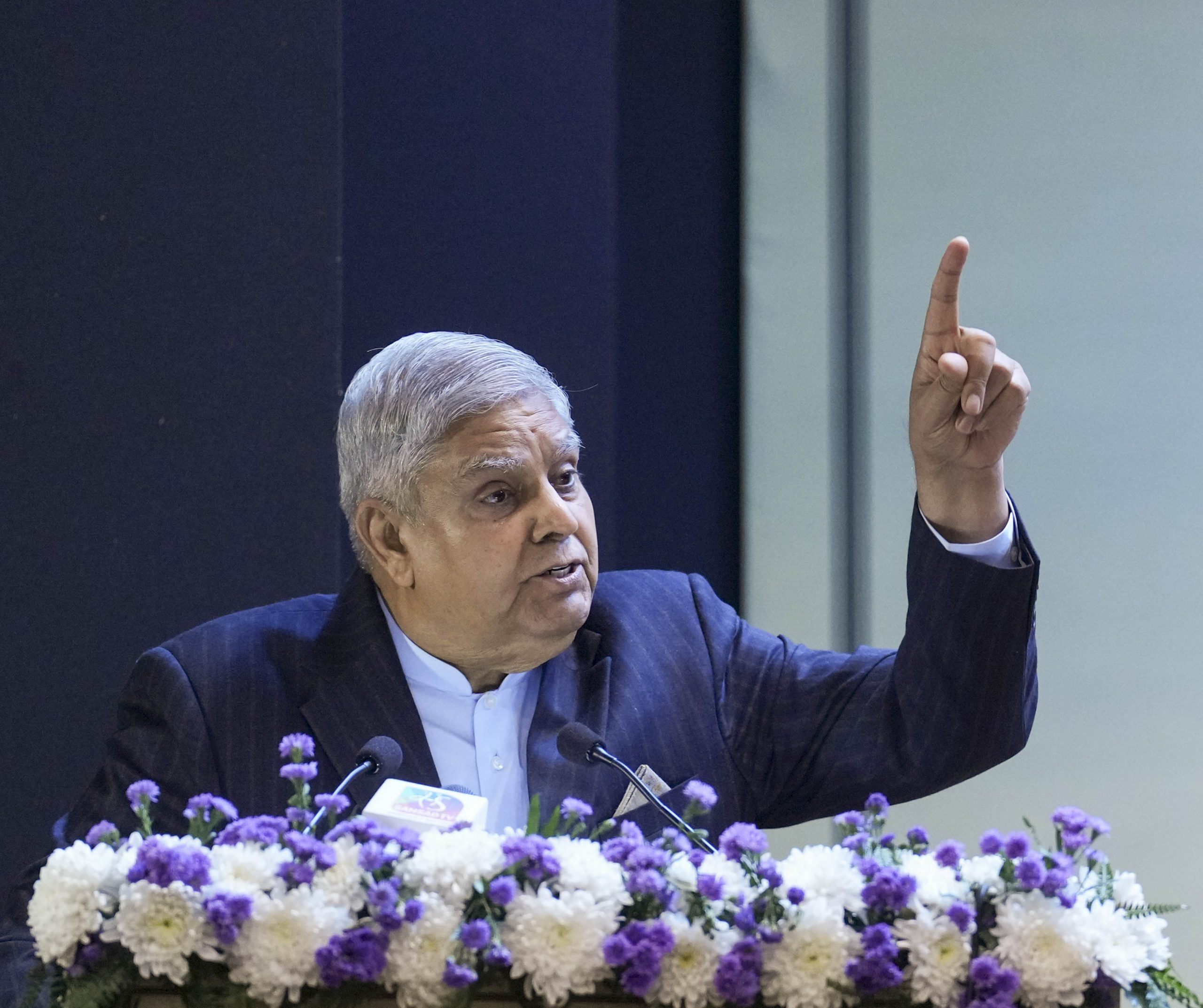New Delhi, Dec 14: Vice President Jagdeep Dhankhar emphasized on Saturday that without scrutiny, both individuals and institutions are likely to decline, highlighting the significance of expression and dialogue for a thriving democracy.
“.. audit and self-audit are crucial. The most reliable way to facilitate the decline of an individual or an institution is to exempt them from scrutiny. When you are beyond examination, degeneration is assured. Thus, self-audit and external audit are vital,” he articulated.
Dhankhar, currently facing a no-confidence notice from opposing parties for allegedly being biased as the chairman of Parliament’s upper house, Rajya Sabha, made these comments during the 50th Foundation Day celebration of the Indian Post & Telecommunication Accounts and Finance Service (IP&TAFS) held here.
Communications Minister Jyotiraditya M. Scindia was also in attendance.
Earlier this week, a record 60 Members of Parliament from Congress and other opposition parties filed the notice, marking a historic event.
Dhankhar pointed out that challenges to institutions frequently arise from the decline of meaningful dialogue and true expression. “The free flow of expression and constructive dialogue are invaluable assets of democracy. Expression and communication are interlinked. Achieving harmony between the two is essential for success,” he stated.
He stressed that the core values of any democracy are crucial for its survival, noting, “Democracy does not rely solely on systems; it is rooted in core values… It should revolve around the delicate balance of expression and dialogue. These two forces, expression and dialogue, are foundational to democratic vitality.”
He conveyed that their progress should not be gauged by individual standings but the broader benefit to society.
“India’s democratic evolution illustrates how diversity and immense demographic potential can drive national advancement. As we navigate the future, we must acknowledge that the health of democracy and economic productivity are intertwined in national development,” he explained.
The Vice President remarked that ego is unhelpful and generally harms the individual who harbors it. “The ego within us is hard to suppress; we must make great efforts to manage our ego. It benefits no one but tends to harm the very person who possesses it.”
Additionally, he stated that the country stands at the brink of another industrial revolution and urged upcoming civil servants to become tech-savvy and act as facilitators of change.
Dhankhar mentioned that national services should become more dynamic, adapting to rapid technological and societal shifts while preserving foundational integrity.
“We are on the verge of yet another industrial revolution, with digital technologies permeating our lives.
“Modern civil servants must embrace technology, facilitate change, and break down traditional administrative barriers. Service should remain our cornerstone. Your roles as administrators, financial advisors, regulators, and auditors should evolve to tackle tomorrow’s challenges,” he advised.
This evolution requires transforming service delivery from conventional approaches to innovative solutions, he added.
He concluded that nation-building now carries greater responsibility, as the vision for a developed nation by 2047 must be conceived, designed, and realized, urging civil servants to “Prioritize bridging the digital divide with innovative financing models aimed at promoting technological adoption in rural areas. With the world’s largest youth population…India’s demographic advantage provides unparalleled opportunities. Your digital initiatives must leverage this young talent pool through skill development and digital entrepreneurship.” (AGENCIES)


Leave a Reply